10 of the biggest failures in recent PC gaming history
PC Gaming Week: You don't ever want to play these PC games
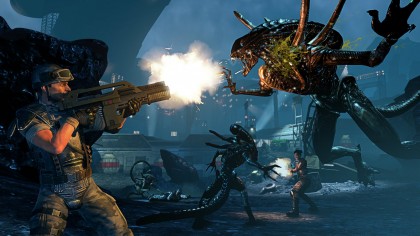
Introducing the worst of the worst
Every year, hundreds of PC games from as many studios are released. Each game has its own set of characteristics, storyline, players and so on. Many games are excellent and go on to receive critical acclaim, financial rewards for the developers and a place in gaming folklore.
However, some games are bad – very, very bad. To the point you wonder how such a thing even made it out of the studio. But, when you're really bored, they're not only a source of foreboding but a source of, well, lulz.
So, join us in looking back at some of the worst PC games ever made in recent memory.
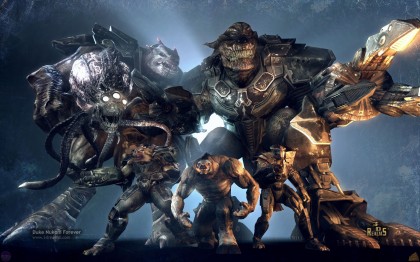
Duke Nukem Forever (2011)
It's no secret that Duke Nukem Forever was one of video game history's most hyped-up letdowns. Universally panned, the game was described as the "shittiest game of 2011" by Destructoid's Jim Sterling.
Ben 'Yahtzee' Croshaw, creator of Zero Punctuation, rated it as the second-worst video game of 2011, slamming it for its poor graphics, gameplay and style.
It's strange that a game that looked like it could be a success, especially as it was based on the Duke Nukem franchise, ended so badly. But, it serves as a warning to gamers and game makers alike that proven source material doesn't guarantee a good game.
According to analytics firm NPD, the game sold 376,000 copies in its first month, which was around half what was expected – ouch.
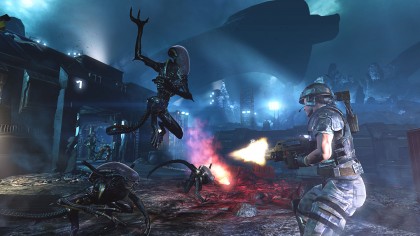
Aliens: Colonial Marines (2013)
The Alien films are universally accepted as some of the best sci-fi movies ever. (OK, at least the first two.) The game, which essentially took the 'Alien' brand and not much more, did not get such high praise.
According to various reviews, the game was buggy, poorly thought out and no fun to play. (That's enough to turn anyone away, no?) The soundtrack was a redeeming feature, but other aspects of the game, like the multiplayer mode, let it down badly.
Sega, the publishers of the game, ultimately had to settle a $1.25 million lawsuit over how the game was advertised versus how it actually played, with specific relation to when reviews (which were embargoed until after the game went on sale) were released. That's pretty damn bad.
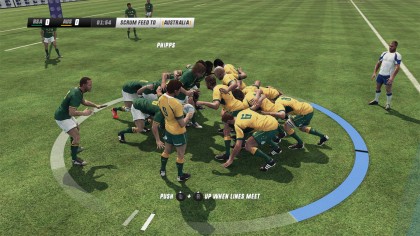
Rugby 15 (2014)
Some sports games, like FIFA, are serial winners that can get released year after year with great success, sales and reviews.
Others, like Rugby 2015, are not so worthy. Unlike some of the previous games in the series, the problems critics had with Rugby 15 were related to how unrealistic the gameplay was. According to IGN and GamesRadar, much of the gameplay was too easy and did not correspond with how the sport of rugby is actually played.
Metacritic – a service that collects video game reviews and creates an aggregate score out of them – gave the game a rating of 19 out of 100, one of the worst aggregate review scores any game has ever received. It's safe to say that Rugby 15 did not score a try, much less even get close.
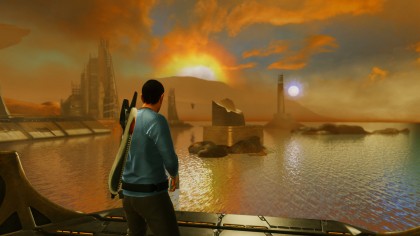
Star Trek (2013)
Critics slammed Star Trek for its poor performance, storyline, bugginess and general lack of that special something that makes an awesome video game. Though, that last bit could have everything to do with said performance, storyline and bugginess.
The final nail in the coffin of the game came, however, from J.J. Abrams, the director of "Star Trek: Into Darkness," which was due to be released around the same time. According to Abrams, the game "emotionally hurt" him and "arguably hurt" the success of his film.
It doesn't get much worse than that for a movie tie-in game.
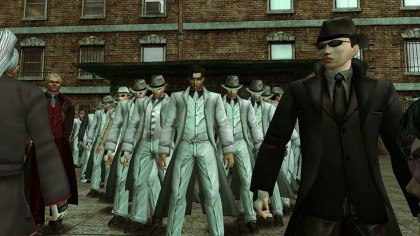
The Matrix Online (2005)
Living up to the success of the Matrix film series – namely the first two – was a near impossible task. And, The Matrix Online, a massively multiplayer online (MMO) game released in 2005 by Sony, was one such venture to fall short.
The game followed the basic premise of the film: players either take a red pill, which continues the game, or a blue pill, which sends them back to their old life. You can imagine that players overwhelmingly took the former, but what was on the other side wasn't exactly stellar.
On paper, this looked like the perfect MMO. Unfortunately, critics didn't like the game, granting it only average scores, which in part bred a less-than-inspired fan base and therefore subscriber numbers that fell through the floor in short order. Sony shut the game down in 2009 for that very reason. There were reportedly around 500 players present as the servers shut off.
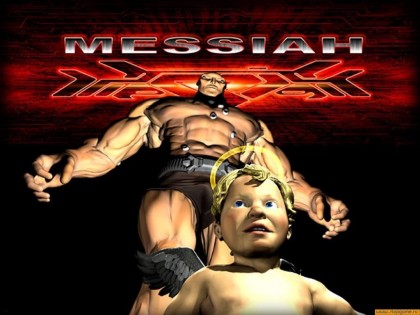
Messiah (2000)
Launched in 2000, Messiah clearly follows the Christian story to excruciating detail. The protagonist, known as Bob, is a cherub sent to Earth by God to clean up corruption and sin. Bob is then asked by God to come back, but he refuses and is then pursued by Satan, who tries to lure him into evil acts.
We can't make this stuff up.
The game is set far in the future and parodies films like Blade Runner and others in the cyberpunk genre. Critics found the premise to be jarring, and some gameplay aspects were not thought to maximise the fun factor.
Or, you know, people just didn't jive with a janky game set around a flying baby in a diaper meting out futuristic justice.
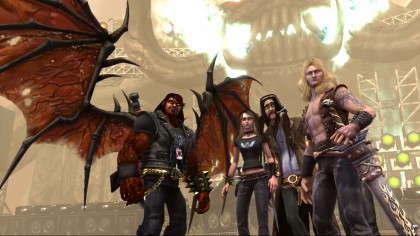
Brutal Legend (2009)
Despite a fun premise, Brutal Legend simply did not sell well. According to some estimates, only 200,000 copies were bought in the first week, ranking it 12th overall for video game sales that month. That's rather low – albeit compared to high-profile games made by big studios with lots of marketing clout behind them.
The misplaced marketing, which emphasised the role of Jack Black as the protagonist over what the game was actually like, was largely responsible for the game's commercial failure. Though, no amount of marketing could've saved an action-adventure-meets-RTS-meets-RPG game that lacked general focus and direction.
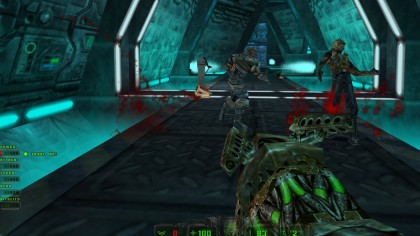
John Romero's Daikatana (2000)
The hype surrounding John Romero's Daikatana was actually one of the reasons it failed. John Romero is a co-creator of Doom, and knowing that, Daikatana was destined to be the Next Big Thing in PC gaming.
However, after a few delays, overspending and in-fighting among Romero's team members, the game launched – and immediately flopped.
Overall, the gameplay was judged to be poor, with ineffective enemies, an army of bugs and a total lack of sound production. Eventually, the game was ranked as one of the biggest failures the industry has ever seen.
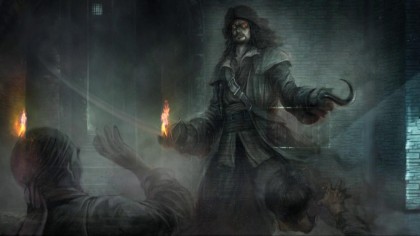
Raven's Cry (2015)
Some games are just unmitigated disasters from the start and Raven's Cry, released in 2015, is one of them. The premise of the game – an open world, action-based sea saga – was undermined by bugs and glitches that made the game virtually unplayable beyond a few scenes.
Some reviews also criticised its script for being sexist, racist and homophobic. (All hallmarks of an ace game, right?) Metacritic served the game an aggregate score of 27 out of 100. We like to think that translates to, "Just walk away. Walk. Away."
This is especially surprising considering the game isn't some back-street sequel, it was developed and marketed by respectable firms, but just came out very badly.
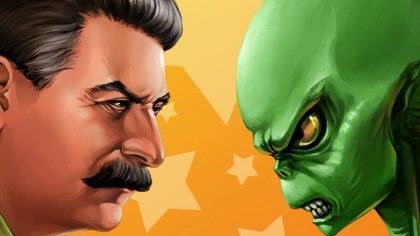
Stalin vs. Martians (2009)
Stalin vs. Martians is a satire game, at least according to its developers, but that didn't stop it getting savaged in reviews, especially for the way it looks.
One player, who rated the game a 2 out of 100 overall on Metacritic, said it looks as if the game had been "made in 1994 and sealed into a vault until 2009," based on the graphics and overall aesthetic.
Other reviews were more positive, but the overall impression is that, while the developers were trying to be funny, the game is a massive failure. It is no longer on sale, despite the website still advertising a second version. Keep dreaming, folks.
Max Slater-Robins has been writing about technology for nearly a decade at various outlets, covering the rise of the technology giants, trends in enterprise and SaaS companies, and much more besides. Originally from Suffolk, he currently lives in London and likes a good night out and walks in the countryside.